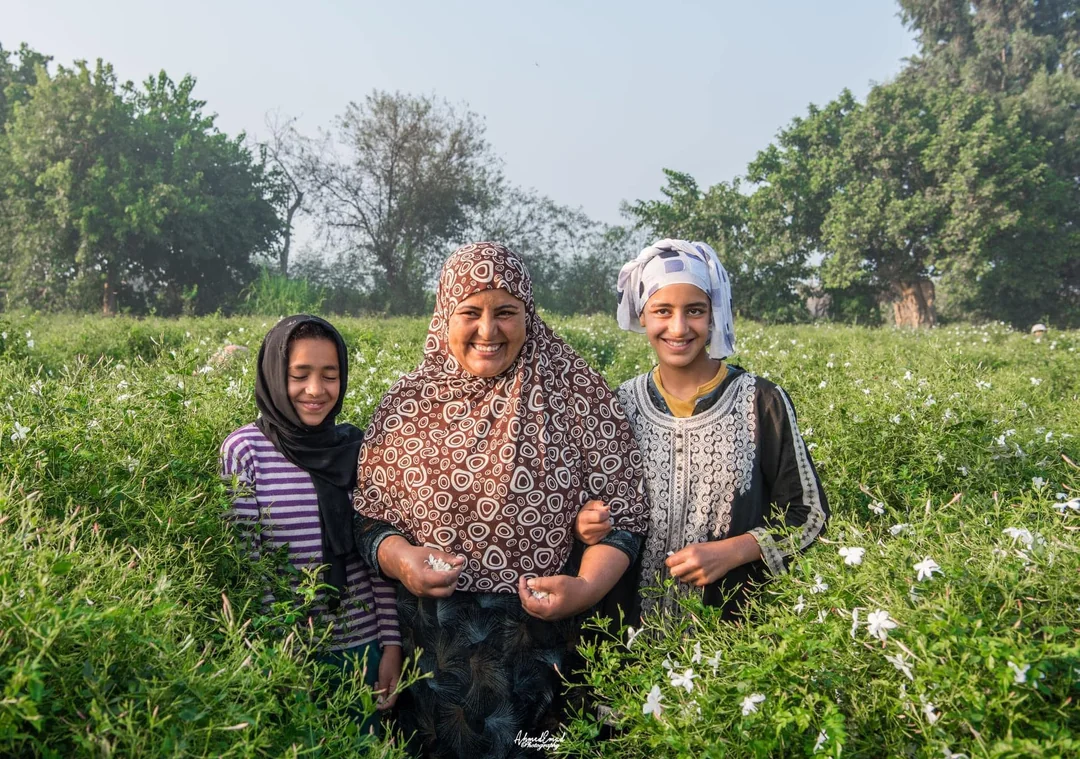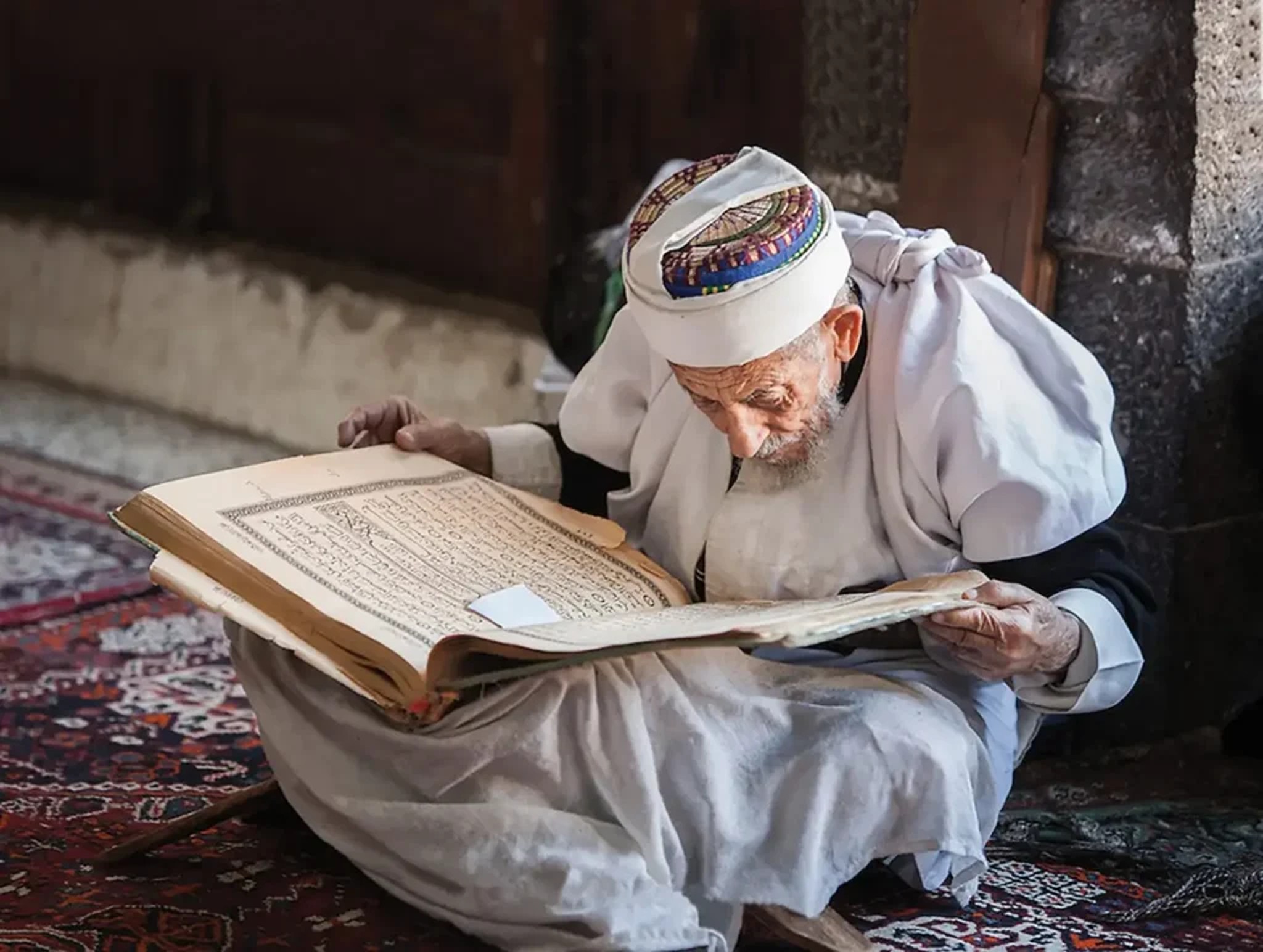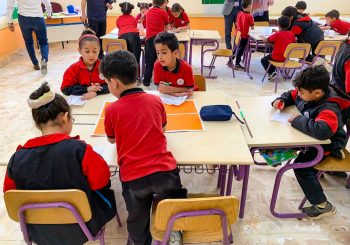Before dawn, the fields of Shubra Beloula stir with activity. Located roughly 100 kilometers north of Cairo in Gharbia Governorate, this small Nile Delta village quietly produces around 60 percent of the world’s jasmine production used in perfumes. Yet outside the fragrance industry, few know its name, or the thousands of hands that harvest its blossoms each summer.
Fields That Fuel an Industry
From June through December, jasmine blooms at night. Villagers rise around 3 a.m., walking under headlamps through rows of chest-high shrubs to pick fully opened buds, each by hand, to preserve their precious oil. A worker may gather three to five kilograms of petals in a session. It takes around 6 million blossoms to produce one ton of jasmine concrete, which yields only about a kilogram of final extract.
The economics are stark. Farmers earn roughly EGP 30 (around USD 1.45) per kilogram of petals, meaning a worker might take home EGP 90–-150 (USD 1.82-3) for a full night’s picking. Despite the labor’s centrality to luxury perfumes, wages remain low. Yet for many, jasmine provides crucial seasonal income.
A Village Connected to Global Luxury
From Chanel No. 5 to Estée Lauder priced at an average of EGP 8600 (USD 170), jasmine acts as a foundational floral note in high-end fragrances. Egypt and India together account for over 95 percent of global jasmine exports. In Shubra Beloula alone, more than 2,500 tons of petals are harvested each year from about 257 acres, making the village a major, yet invisible, player in the global perfume economy.
The village first embraced jasmine in the 1950s, introduced by growers whose descendants continue the work today. Other crops such as bitter orange also appear in smaller numbers, but jasmine remains at the center of agricultural life there.
The Human Cost and Growing Attention
Jasmine picking engages entire families, from children as young as seven to the elderly, shaping household routines and finances. In 2024, BBC reported widespread child labour and health concerns among young pickers in Gharbia villages, including Shubra Beloula. Workers spoke of respiratory problems and school absences caused by early starts and prolonged exposure. Though jasmine brings income, its burden is visible.
At the same time, rising media coverage has brought a new kind of attention. Domestic tourism initiatives have started taking visitors to the fields, offering locals a modest but meaningful new income stream. These tours bridge the gap between the scent harvested in the fields and the global products it becomes.
From Village to Vanity Shelf
What begins at 3 a.m. beneath headlamps becomes part of perfumes sold around the world. Jasmine’s journey, from delicate blossom to global luxury product, reveals a supply chain that rests heavily on local labor but returns little recognition.
To name Shubra Beloula is to acknowledge a place, and to confront the human cost of beauty, the ingenuity of Egyptian agriculture, and the workers whose invisible hands shape the fragrance industry.







Comments (0)